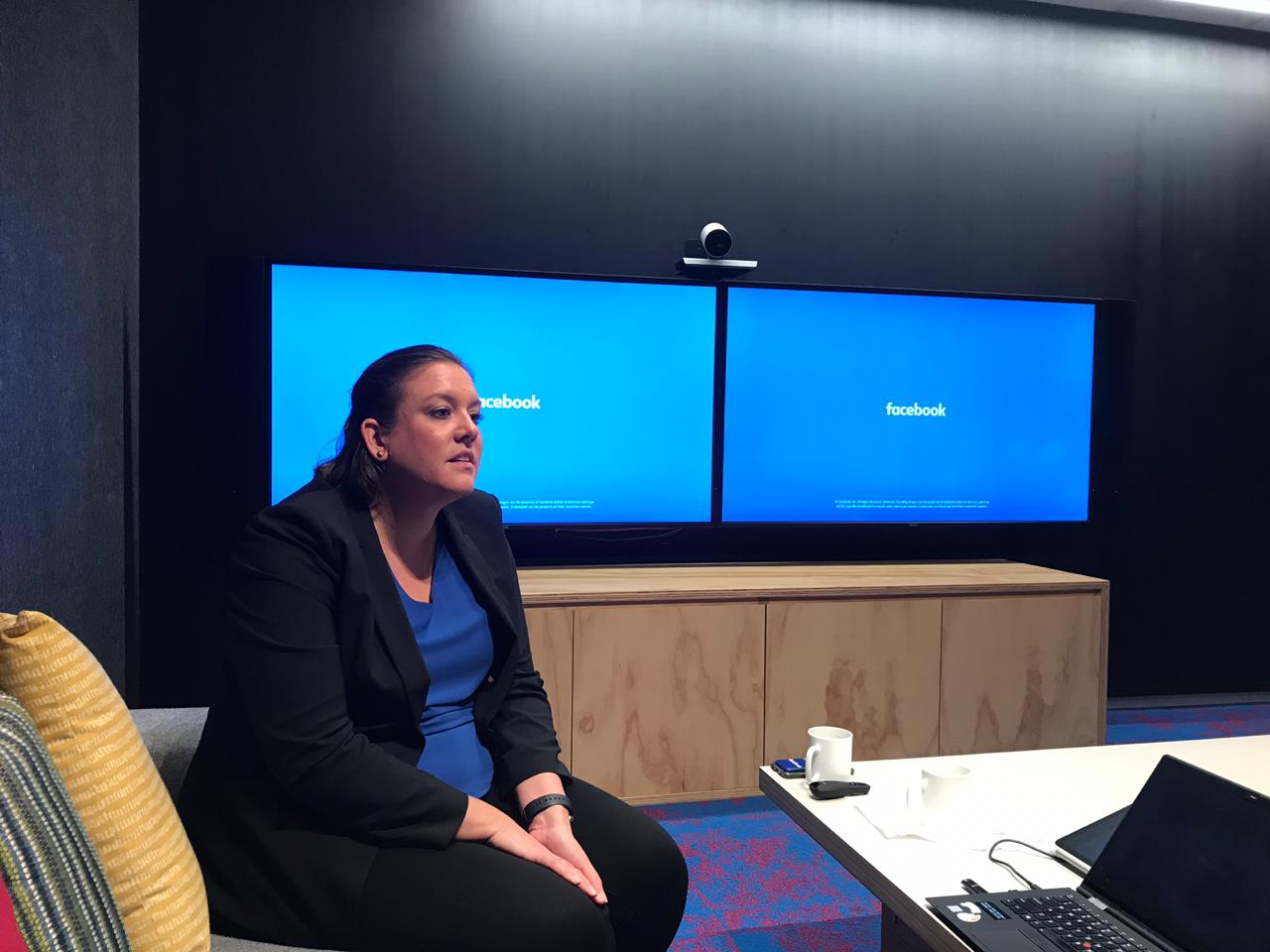FB cracks down on fake accounts, fake news to keep PH ‘election integrity’

Facebook’s Katie Harbath. Photo by Consuelo Marquez/ INQUIRER.net
MANILA, Philippines — Facebook will continue to take down fake accounts and stop the distribution of fake news to assure “election integrity” in the Philippines, said Katie Harbath, director of Facebook’s Global Politics and Government Outreach Team on Thursday.
Harbath said Facebook will promote election integrity as issues on fake news are more heightened during election periods.
“The work that we are doing when it comes to integrity spans so many different teams in the company and these issues around fake news and false news and other things are happening even when there is not an election but they become more heightened during an election period,” Harbath said on Thursday in a press briefing at the office of Facebook Philippines in Taguig City.
Harbath said they use “machine learning” to identify fake accounts who would violate Facebook policies such as creating “hate speech.”
“We are using a combination of technology and machine learning in order to better identify fake accounts and remove them from the platform,” Harbath said.
“These folks are creating profiles and trying to make them seem like actual people, we have some good signals around real new users,” she added.
Previously, Facebook started its efforts to shutdown popular pages in Facebook such as Twinmark Media Enterprises, the digital marketing company behind the popular pages Filipino Channel Online and Trending News Portal, which violated Facebook’s “misrepresentation and spam policies.”
READ: Facebook kicks out Filipino Channel Online, Trending News Portal, 314 other accounts for spamming
Aside from fake accounts, Harbath revealed new features to prevent the dissemination of bogus news reports such as improving its verification of news reports being shared by its users.
“There is also work we are doing in terms of digital literacy that we have done here in the Philippines to become more critical consumers of the news. [They] have more tools in their tool box in order to understand what they are seeing and helping them to kind of verify if it might be true or not before they decide to believe it or share,” Harbath said.
Harbath said they work with third party fact checkers such as Poynter Institute and the Philippine news site Rappler to help them in identifying hoax reports online.
“We also work with third party fact checker. We work with the Poynter Institute that has an international fact-checking consortium — of course Rappler is one of those partners that we work with,” Harbath said.
“We have a dashboard some of the signals that we have we can use machine learning to try to identify any patterns in hoaxes that people might post in platform,” she added.
Harbath also explained that people who report false news are also fact checkers.
Harbath told reporters that Facebook will also “make advertising more transparent” and “disrupt bad actors” to protect online safety and enhance nationwide digital literacy efforts. /muf